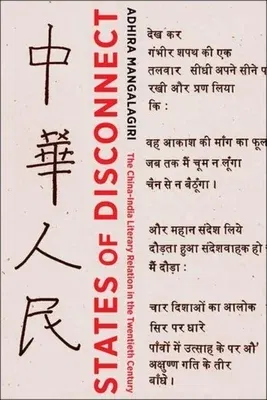In an interconnected world, literature moves through transnational
networks, crosses borders, and bridges diverse cultures. In these ways,
literature can bring people closer together. Today, as hopes for
globalization wane and exclusionary nationalism is on the march, can
literature still offer new ways of relating with others? Comparative
literature has long been under the spell of circulation, contact,
connectivity, and mobility-what if it instead sought out their
antitheses?
States of Disconnect examines the breakdown of transnationalism through
readings of literary texts that express aversion to pairing ideas of
China and India. Focusing on practices of comparison, Adhira Mangalagiri
considers how these texts articulate the undesirability or impossibility
of relating with national others, tracing portrayals of violence,
silence, and distance. She proposes the concept of "disconnect" a crisis
of transnationalism perceptible in moments when a connection is severed,
interrupted, or disavowed. Despite their apparent insularity, texts of
disconnect offer possibilities for relating ethically across national
borders while resisting both narrow nationalisms and globalized habits
of thought. Reading a variety of largely untranslated twentieth-century
Chinese and Hindi short stories, novels, and poems, Mangalagiri develops
three new strategies for comparison-friction, ellipses, and
contingency-that together comprise a critical vocabulary of disconnect.
Foregrounding transnationalism's discontents, States of Disconnect
offers a different path by which literary texts can cultivate a critical
sensibility for making sense of a world rife with division.

